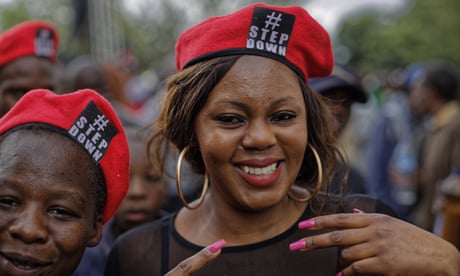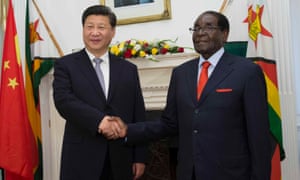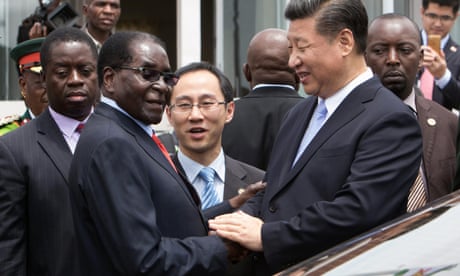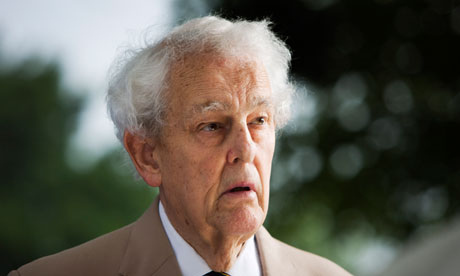Drive any distance anywhere in Zimbabwe beyond the upmarket Borrowdale neighbourhood in Harare, where Robert Mugabe and his wife Grace are detained in their sprawling mansion, and the scale of the challenges facing what was once one of the wealthiest countries in Africa is evident.
In the capital, the roads are potholed, outside they are cracked and crumbling. Banks are so short of cash that people wait hours to withdraw even tiny sums. The only jobs are in government service, yet salaries are rarely paid. The best and the brightest have long fled abroad. Warehouses are empty, fields lie fallow. The busiest store in rural villages is the “bottle shop”, selling dirt-cheap spirits.

Zimbabwe has famously abundant natural resources but resuscitating the economy after 20 years of disastrous mismanagement and wholesale looting by corrupt officials is a major undertaking. The banking system needs to be rebooted, faith restored in the national currency and government finances somehow replenished. The vast debts incurred by Mugabe’s regime need to be rescheduled or waived and new funding arranged to rebuild the country’s shattered infrastructure.
Investors have long been interested in Zimbabwe but put off by the significant risk that any funds will be stolen or any successful venture appropriated. Can they now be sure that will not happen? Old habits die hard.
The ruling Zanu-PF party and allies in the military launched their takeover to purge an ambitious faction that threatened their position, not because they wanted to see structural reform that would shut down their own lucrative rackets and rent-seeking.
There are immediate practical problems, too. The police are seen as creatures of Mugabe by the military and allies, but someone needs to patrol the streets. There is the fate of Comrade Bob and Grace, when they are no longer president and first lady, to decide. There is a government to form, possible elections to hold.
It is this political process that poses the greatest challenge. The people of Zimbabwe have high hopes of a new democratic era. But the ousting of Mugabe was a redistribution of power within the ruling elite of Zimbabwe, not a people’s revolution.
Emmerson Mnangagwa, the ousted vice-president, who is most likely to succeed Mugabe when he finally leaves power, is no committed democrat. He was Mugabe’s chief enforcer, with a long history of human rights abuse. Mnangagwa, 75, will need to make some concessions to public opinion within Zimbabwe and the hopes of the international community, not least to get the donor and diaspora money the country so desperately needs. However, he will seek to do this while reinforcing, not weakening, the grip of the party.
But how long will Zimbabweans tolerate the rule of a clique of septuagenarian veterans of an armed struggle that took place before most of the population was born?
A similar question has been asked elsewhere in Africa over recent decades. It is being asked today in neighbouring South Africa, where the lustre of the African National Congress has steadily diminished over its 23 years in power.
The eventual demise of parties like Zanu-PF is inevitable. But so, too, is the trauma that accompanies their passing.


